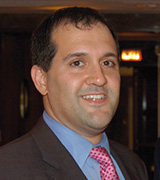- Leading HANAC: Stacy Bliagos on Community Service in New York
- The Hellenic Initiative Celebrates Record-Breaking Weekend in New York
- Building the Future: HANAC’s 53rd Anniversary Gala Honors Advocates for Affordable Housing and Community Care
- Leona Lewis: Las Vegas residency ‘A Starry Night’
- Emmanuel Velivasakis, Distinguished Engineer and Author, Presents His Book at the Hellenic Cultural Center
Cultural Literacy as a New Year’s Resolution

by Endy Zemenides
Most people reading this have probably made a resolution to better themselves in some way in 2017. We all have thought of how to make ourselves healthier, more efficient, happier. Those reading this magazine share an interest in Hellenism and the Greek-American community, but have we all considered how we can better contribute to Hellenism in 2017?
The New Year inevitably leads to some type of reflection. Since the challenges faced by Hellenism remain for 2017, it is high time for a great debate over what it means to be a Hellene in the diaspora. This could in fact be a divisive question. Does being a Hellene require a level of fluency with the Greek language? Does it require some tie to or advocacy on behalf of Greece? Does it require being Greek Orthodox?
Our future as a diaspora may indeed depend on the answers to the above questions, but even coming up with these answers may be controversial. We can no longer characterize our community as one led by immigrants from Greece. The number of households speaking Greek is constantly decreasing. Attendance at Greek language schools is at historic lows. The Greek Orthodox Church is losing stewards.
Establishing some common point of reference for Greek Americans nationwide is as important as ever. Being united by Greek ethnicity at some point in our blood line is insufficient if our goal is a long-lasting community. That is why at HALC (Hellenic American Leadership Council) we have embarked on a series of national focus groups (both on-line and off-line) to reveal a baseline cultural literacy that is shared by diverse groups of Greek-Americans.
One of our most fascinating sessions featured Professor Nanno Marinatos, the head of the Department of Classics and Mediterranean Studies at the University of Illinois at Chicago. Professor Marinatos was asked the following question: “What is one thing we all must do to start preserving the essence of Hellenism?” Without hesitation, Professor Marinatos answered to an audience of mostly young parents and young professionals: “Become familiar with the texts of Herodotus and Thucydides, and pass their lessons onto the next generation.”
This is where we are lucky as Greek-Americans. These fundamental texts and others – Homer’s Iliad and Odyssey, Plato’s Republic, the various works of Aristotle, the Greek tragedies – have all seeped into our education as Americans. They appear in social studies curricula in elementary school and in English literature and world history courses in high school; they form the backbone of Philosophy 101 and Great Books seminars in college; they are all a part of The Dictionary of Cultural Literacy: What Every American Needs to Know.
Following Professor Marinatos’ advice is easier than ever. One doesn’t have to accept the challenge of reading translations of Herodotus’ The Histories or Thucydides’ The Peloponnesian War without the guidance of a professor. Robert Strassler has produced the fantastic Landmark Ancient Histories series. In The Landmark Herodotus and The Landmark Thucydides readers get not only the translated text, but hundreds of maps, appendices that explain ancient Greek religion, customs, economy, ways of warfare, and margin notes that allow the reader to easily review the text.
For those that find the 700+ pages in each Landmark History too daunting, fear not – historians and novelists have provided options that will do the trick for you. Professor Paul Cartledge of Cambridge University puts you down right in the midst of a Spartan phalanx with Thermopylae: the Battle that Changed the World and After Thermopylae: The Oath of Plataea and the End of the Graeco-Persian Wars. Cornell’s Barry Strauss leaves readers in awe of Themistocles and trireme warfare in The Battle of Salamis. Stephen Pressfield brings Herodotus to life in The Gates of Fire, a novel that will make you wish you were by Leonidas’ side at Thermopylae. Donald Kagan, Mary Renault and Stephen Pressfield (again) all make Thucydides more accessible as well.
In 2017 let us all resolve to embark on a new journey together, a journey to rediscover Hellenism. Let us start with Professor Marinatos’ simple suggestion; the books above and many more make it an easy enough task. For those who would like to take it to the next level, contact us at culturalliteracy@hellenicleaders.com to participate in our focus groups on Hellenism.











0 comments